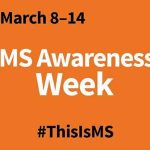
Living with MS is not easy. Every day brings new challenges and struggles. Mild exacerbations in MS symptoms fade away on their own and therefore are not worrisome. However, the patient needs treatment for severe relapses or’ flare-ups’ as they are called generally. Although you can recover after a flare-up, your symptoms will not go away if you have suffered a massive degree of nerve damage.
MS Management
Here are some tips you can follow to manage your disease better:
Cold Showers – Heat is one of the major causal factor leading to worsening of your symptoms. To pre-empt your symptoms of MS, you should take cold or very cold showers. Along with this, follow these tips to ease out your symptoms:
• Take a cold shower
• Drink plenty of water
• Use a cooling vest
• Avoid going outside your house between 10:00 AM and 2:00 PM when the sun is at its peak
Get Enough Sleep – The first priority in your life should be yourself when you have MS. Get 7-8 hours of sleep every night. Although having sound, uninterrupted sleep is easier said than done, for MS patients, healthy sleeping habits will help keep sleep disorder(s) at bay.
Physiotherapy and Rehabilitation – In case of severe exacerbations, you may need to enroll in a rehabilitation program in a medical facility. Usually, a team of specialized physical therapists will conduct the program. You will get help with:
• Exercise
• Movement
• Speech
• Home chores
• Problems with thinking & memory
• Dressing and personal care
Use of Steroids – Severe flare-ups are those which affect your daily routine. In case of severe relapses, steroids prove to be effective. Corticosteroids are the time-tested first line of defense. You will find two types of Corticosteroids: methylprednisolone (Solu-Medrol) and prednisone (Deltasone). Generally, a combination of both is used to treat Multiple Sclerosis relapses.
Multiple Sclerosis Prevention
• Take your Medication Regularly – Never skip your medicines even if you feel absolutely normal. Consult your doctor if you experience any side effect. Regarding medication which does not seem to produce conspicuous results, Dr. Rae Grant says, “It’s like treating high blood pressure: You do not feel any better on these medicines, but they may prevent a stroke or a heart attack.”
• Quit Smoking – Smoking worsens your symptoms and invites relapses. Try to start a new chapter in your life and forgo this habit. This might lead to a lengthening of the remission period.
• Relax and Avoid Stress – Stress is a major cause of flare-ups so you must avoid it at all costs.
• Avoid Catching Infections – These include both major and minor infections, such as URIs and the common cold and flu. Adopting a pro-active approach towards preventing MS symptoms from flaring, try to prevent yourself from falling prey to infections by following these guidelines:
- Wash your hands regularly
- Avoid meeting people who have contagious diseases
- Make sure you eat fully cooked food
- Avoid going to densely populated places
Surah Al Rehman the Ultimate Remedy
• Listen to Surah Al Rehman – The word of Allah Almighty (SAW) is healing not only for the soul but also for the body. Listen to the Quranic recitation with full sincerity, dedication, and supplication in Qari Abdul Basit’s voice at AlRehman.com
We have numerous case examples to share of patients who have benefited from listeing to the recitation. Dr. Zainab, discusses her own experience on WhatsApp. According to Dr. Zainab, she was suffering from Postpartum Psychosis, a rare psychiatric emergency in which many psychiatric symptoms set in, beginning suddenly in the first two weeks post childbirth. One of her colleagues suggested her to listen to Surah Al Rehman three times daily for seven days. Zainab reported recovery soon after doing so.
Another member of the MS society reported to have been listening to the Surah for four years and never experienced a flare-up during the said time period. I myself listen to Surah Al Rehman regularly for its healing properties.
Let us know in the comments below regarding the steps you take to manage your disease and prevent flare-ups.






